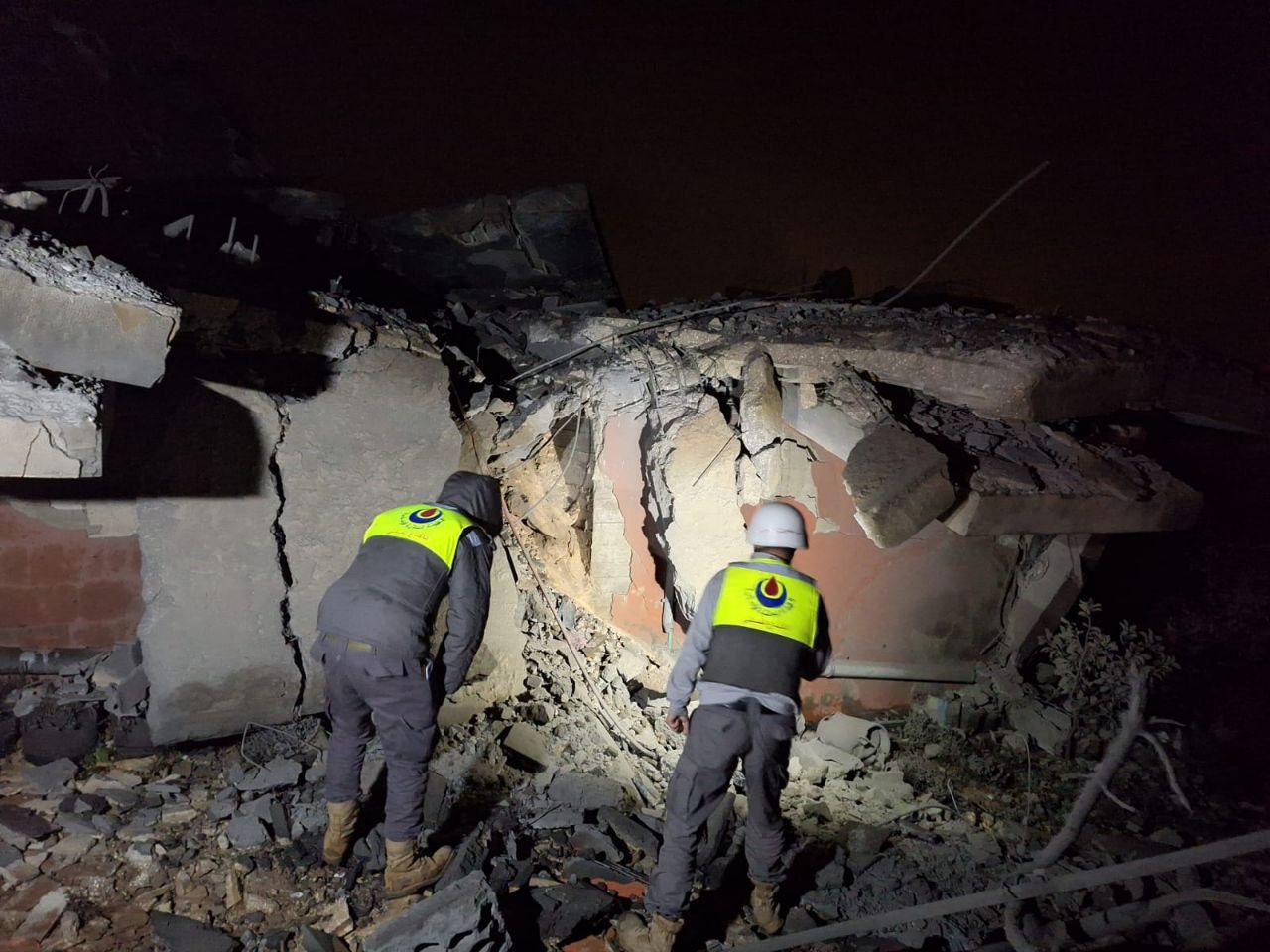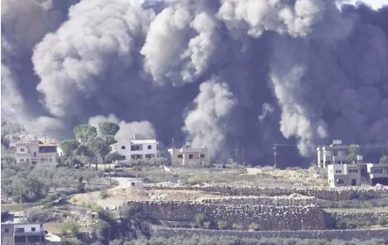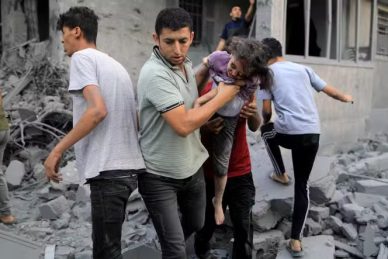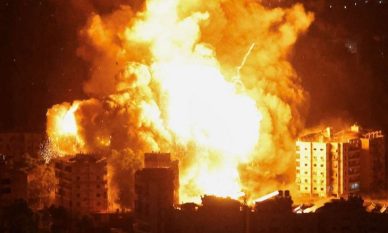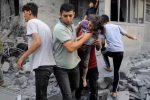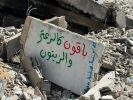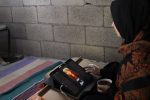GAZA, (PIC)
Despite the praises and explicit admiration for the International Court of Justice’s decisions regarding the imposition of precautionary measures, compelling Israel to cease the torrent of bloodshed and the rise of thousands of casualties in Gaza, including martyrs and wounded, all of this, in the balance of the observed reality and the ongoing aggression, reveals the fragility of humanity and its feeble laws. It fails to stop the killing machine, military destruction, and the entity’s continuation of its brutal massacres and advancement in the crimes of genocide, leaving a stain of shame on the forehead of humanity.
Observers see that the court’s decision is a historic turning point that strips Israel of its immunity under international law, as well as its importance in dismantling the classic narrative of the occupying state and exposing its moral degradation, reaching the point of a catastrophe with severe political, economic, and legal consequences for Israel.
However, the big question that has yet to find an answer in the face of the sleeping human conscience is how can we trust the powerless international justice to stop the killing, destruction, and terrorizing of the innocent in Gaza through eviction and displacement? This represents the greatest humanitarian catastrophe witnessed in modern history. When can this justice find its way to Gaza to vindicate the oppressed, imprison the criminals, and not remain mere ink on paper?
An opportunity to test the will of Arab and Islamic states
The Palestinian politician, Mustafa Barghouti, believes that despite the shortcomings shown by the International Court of Justice in not calling for an immediate ceasefire in the Gaza Strip and the flaw in discussing the release of Israeli prisoners without mentioning the necessity of releasing Palestinian prisoners, including minors and thousands who are abducted in the Strip, the court’s ruling accepting the lawsuit filed by South Africa against Israel, accusing it of genocide, represents a historic transformation that strips Israel of its immunity under international law for the first time in 75 years.
Barghouti emphasized that the natural next step for the court’s decision is what Algeria, as a member of the Security Council, can do by proposing a resolution calling for a comprehensive and permanent ceasefire as a necessary condition for implementing the court’s decisions. If the United States decides to use its veto power again to obstruct the resolution, it will itself be accused of facilitating the crime of genocide. This veto will not prevent Algeria and friendly countries from returning to the General Assembly to take a new decision to call for the ceasefire.
He stressed that the court’s focus on the necessity of providing basic services and humanitarian aid to the people of the Gaza Strip and obligating Israel to do so is an opportunity and a test of the will of the 57 Arab and Islamic countries that met in Riyadh and made a decision to break the illegal siege on Gaza. If the will exists, they can implement what we have previously suggested by forming a humanitarian convoy consisting of representatives from all countries carrying their flags and inviting international humanitarian institutions to participate in breaking the illegal siege imposed by Israel on the Rafah crossing, which Israel has no right to control.
He concluded that neither injustice, nor cowardice, nor racist bias towards Israel and defending its aggression can break the will, determination, and struggle of the Palestinian people for freedom.
And it is worth mentioning that even if it has permanently dispelled illusions that have dominated the consciousness of many regarding the adoption of those values of international law, human rights, and democracy by those countries, these illusions have forever evaporated on the sands of the resilient Gaza Strip, with its heroic endurance of the most heinous humanitarian crime in our modern era.
Eliminating the classic Zionist narrative
For his part, the writer and political analyst, Issa Al-Shuaibi, believes that the decisions of the International Court of Justice are extremely significant, especially in the moral dimension, which is absent from the discussions of most commentators engaged in public political debates.
He stressed in an article that the International Court of Justice, by accepting the lawsuit, has shattered the classic Israeli narrative, based on a sense of racial superiority, justice, entitlement, and eternal victimhood, and moved it from a position of alleged dominance, distinction, and uniqueness to the margins and depths of moral inferiority.
Severe devastating effects
On the other hand, Yasser Abdel Rahim, a professor of international and constitutional law at Erfurt University in Germany, believes that Israel’s condemnation for the genocide it is committing in Gaza will not only have severe political, economic, and legal consequences for Israel but will also serve as a service to humanity as a whole.
Abdel Rahim pointed out in an article that such condemnation from the highest international court will revive hope in the hearts of the oppressed and persecuted for the existence of international justice. He emphasized that such condemnation will also be a blow in the face of the Western powers that claim to be concerned about human rights but support the “Zionist entity” in committing crimes under international law. It will also be a shameful testimony for anyone who has colluded, conspired, acquiesced, or remained silent among the Arab rulers regarding what is happening in Gaza, despite their ability to act to prevent or stop that crime that stains the conscience of humanity.
Regardless of the opinion on the objective basis of the charge of genocide, the interim judgment issued by the International Court of Justice against Israel is, objectively speaking, a disaster for Tel Aviv.
In this context, an editorial in The Independent commented that from now on, every time an Israeli minister, official spokesperson, or diplomat appears publicly or in a private meeting with their counterparts, they will have to confront the glaring charge of genocide.
Israel has lost more of its moral standing in a war that it considers existential, and America, in particular, is expected to feel panic and disappointment, according to the newspaper.
A stain of shame
Osama Hamdan, a leader in the Hamas Movement, had said that these massacres and crimes in the Gaza Strip will remain a stain of shame on the foreheads of all those who support them, watch silently without condemning or denouncing them, hesitate or falter in stopping them. “It will remain engraved in the memory of our resilient people, who will not forgive it and will not back down from defending their legitimate rights.”
Hamdan wondered, where are the silent and watching countries’ stances towards these crimes and massacres that target Palestinian civilians? Why have they not issued a position or a voice to condemn and denounce these violations and crimes against humanity? Or do Palestinian civilians not count as human beings? Isn’t this reprehensible racial discrimination from countries that claim to defend human rights?
He added that Israel’s persistence in escalating its aggression, despite the International Court of Justice’s decision, and the ongoing bombing, killing, extermination, starvation, and thirst, in the face of the sight of tens of thousands of displaced people in the open in winter and freezing cold, and the drowning of their tents that shelter them in the midst of winter and freezing cold, all raise questions about the role of the international community, which stands idly by. “It also raises questions about the responsibility of Arab and Islamic leaders towards our people.”

